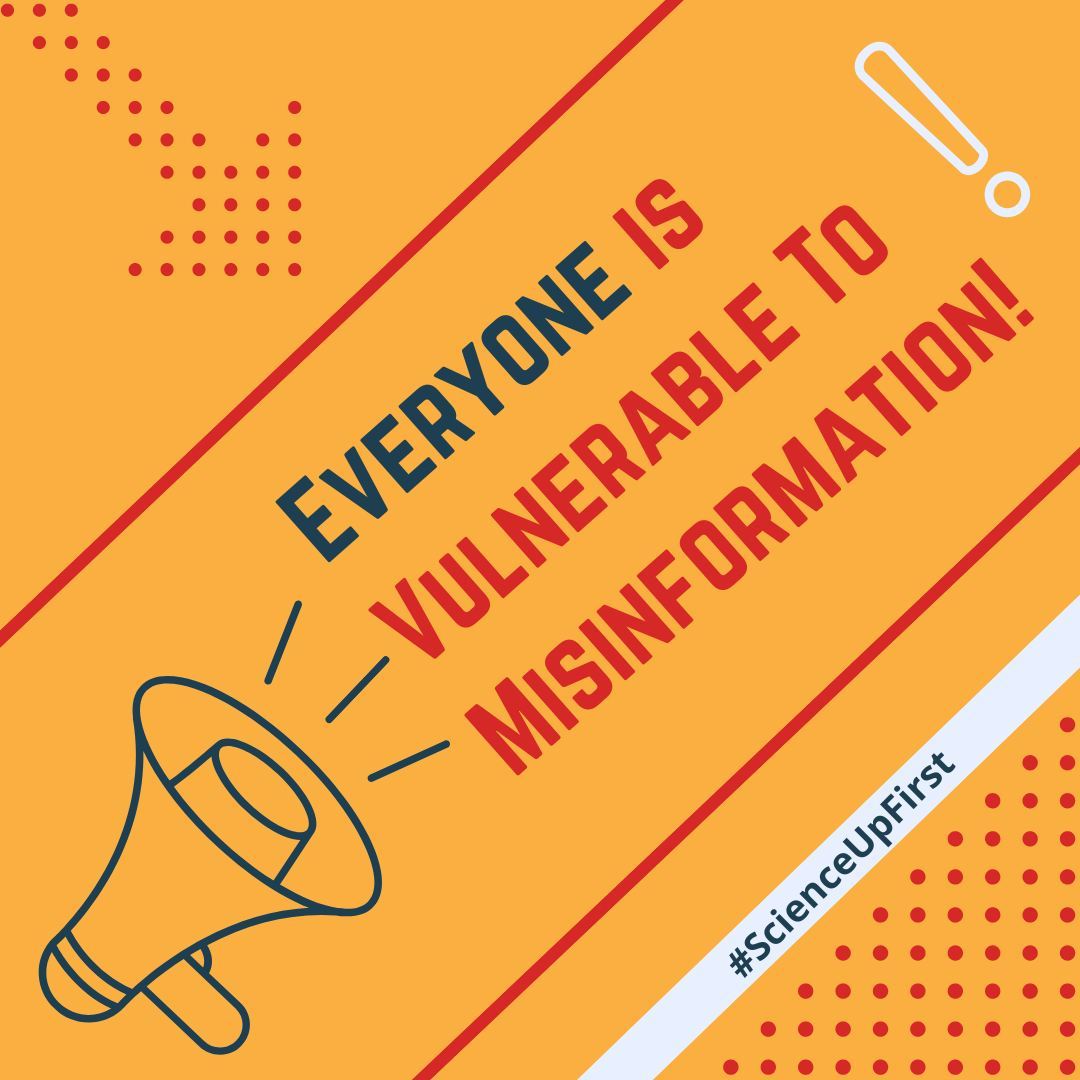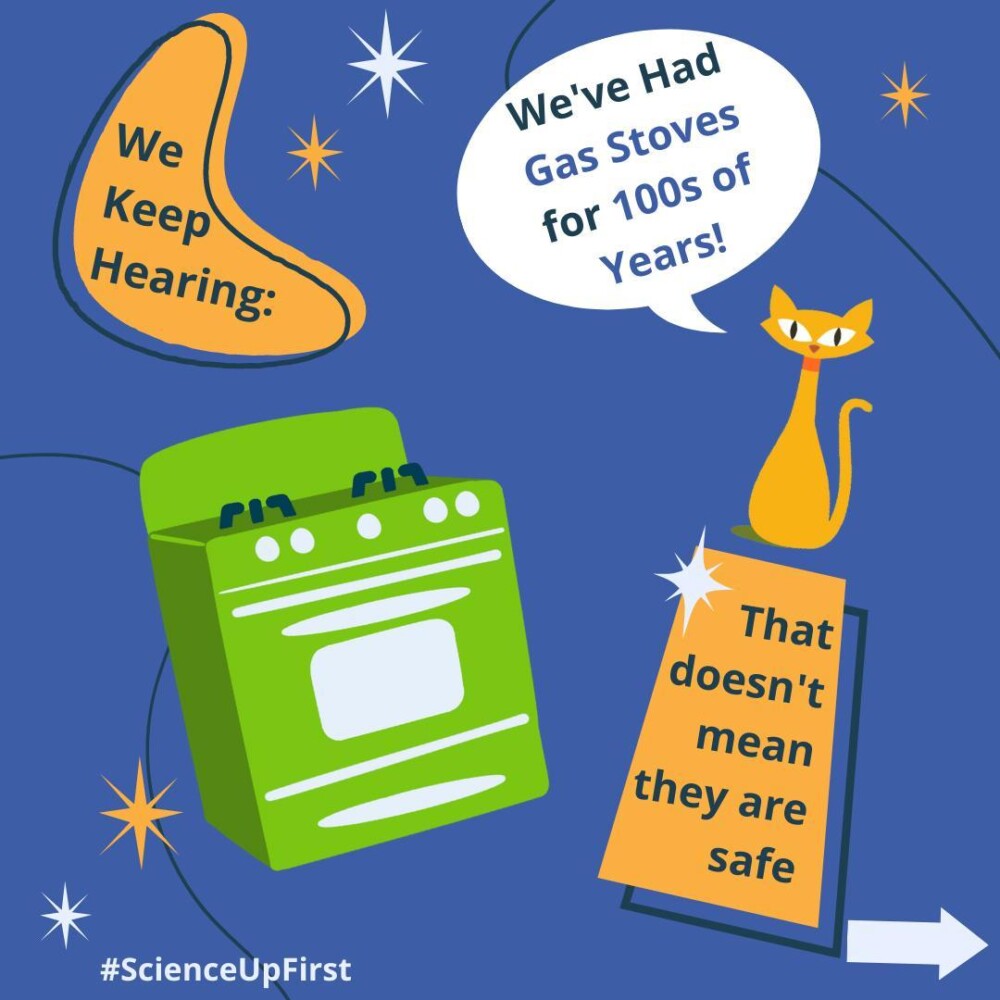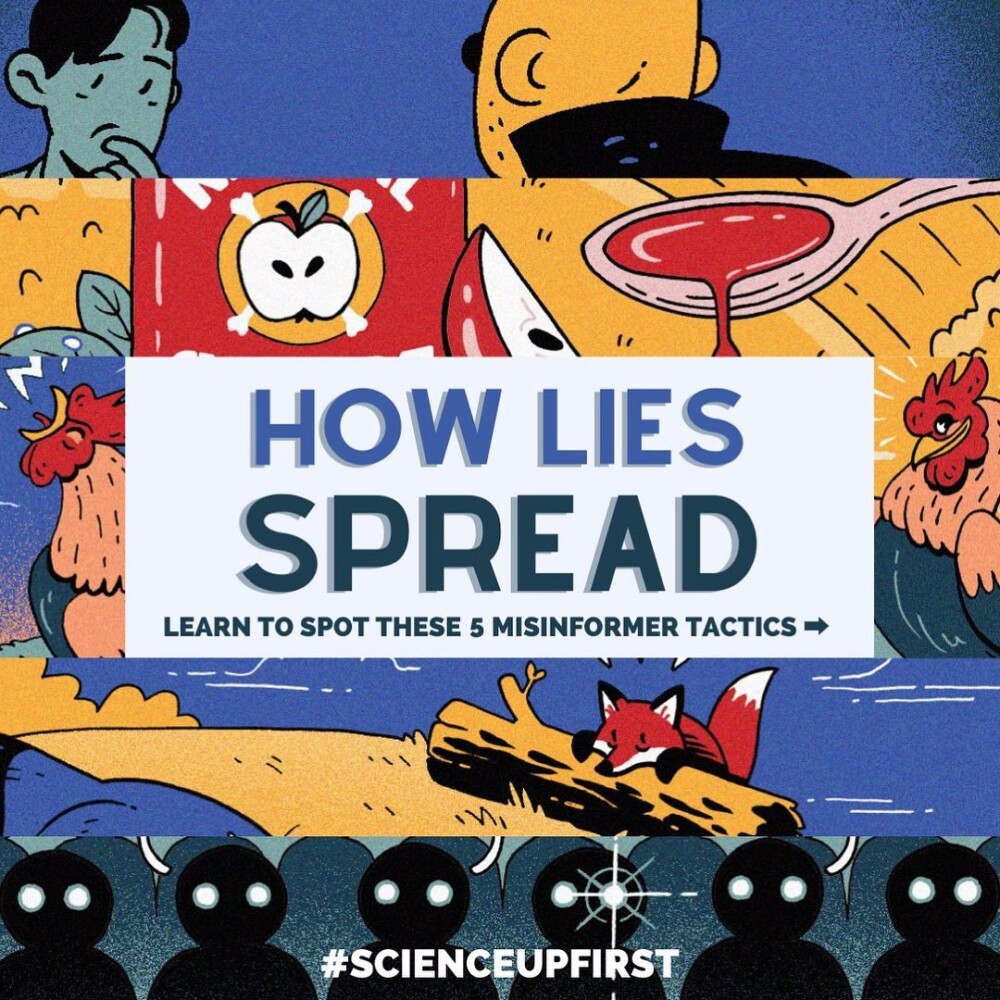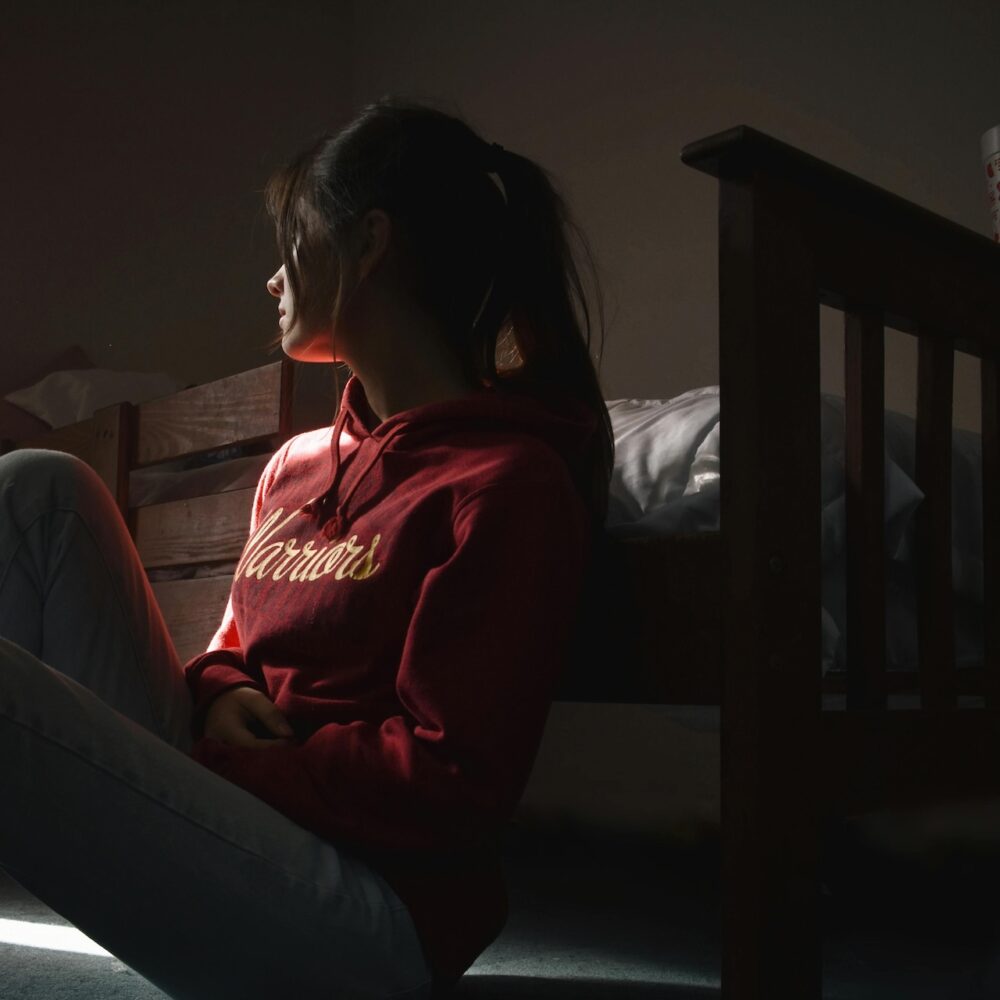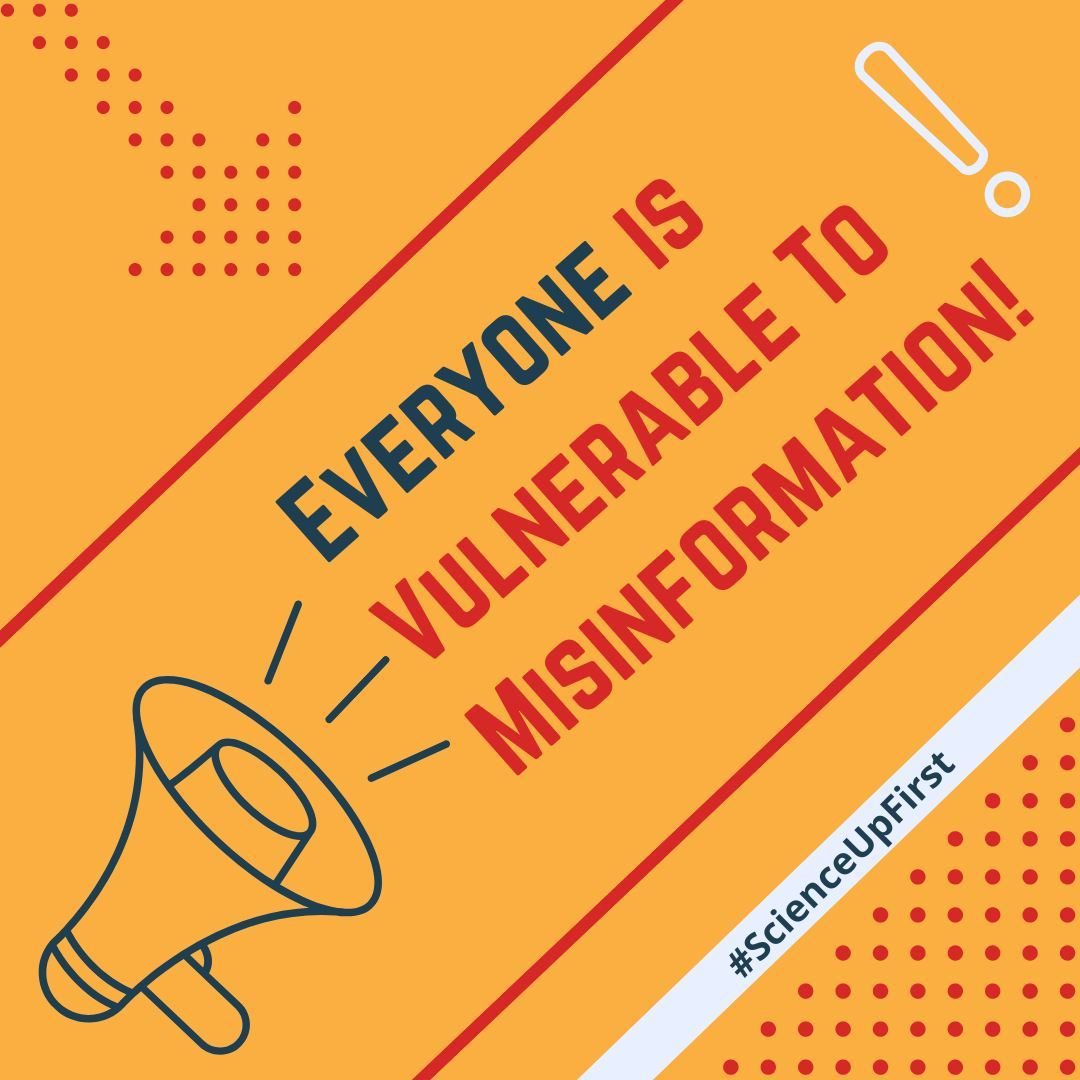
Believing misinformation is NOT a reflection of someone’s moral character or intelligence. Misinformers have a slew of tactics they use that could catch anyone off guard.
Most of the time, people do not want to share inaccurate information. In one study 80% of respondents felt it was very important to only share accurate content online (1) Research finds that folks are more likely to fall for fake news when we rely on our emotions (2).
It turns out that people of ALL ages around the world are vulnerable to misinformation. While adults 65+ are more likely to share fake news stories on Facebook (3), conspiracy theories are being spread by teens on TikTok (4). A recent survey of over 20,000 Americans found that the younger you are, the more likely you are to believe in false claims about COVID-19 (5).
The good news is there are things you can do that make you less vulnerable:
- Always read past the headline
- Check the source. Is it reputable? ️
- Learn the tactics of misinformers. If you know the tricks you are less likely to fall for them. We break down a bunch of these on our website.
Share our original Tweet!
Believing misinformation is NOT a reflection of someone’s moral character or intelligence.
Misinformers have a slew of tactics they use that could catch anyone off guard.#ScienceUpFirst[1/3] pic.twitter.com/naaffPgOlY
— ScienceUpFirst | LaScienced’Abord (@ScienceUpFirst) January 6, 2023
View our original Instagram Post!
View this post on Instagram
- Most People Don’t Actively Seek to Share Fake News
- Shifting attention to accuracy can reduce misinformation online
- Less than you think: Prevalence and predictors of fake news dissemination on Facebook
- Why Teens Are Falling for TikTok Conspiracy Theories
- The State Of The Nation: A 50-State Covid-19 Survey Report #14: Misinformation And Vaccine Acceptance

